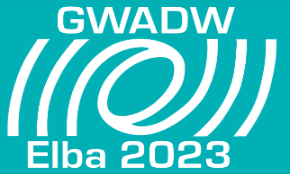Speaker
Description
Improvement of the sensitivity of gravitational waves (GWs) at lower frequencies is important for 3rd-generation detectors. While space-based detectors, such as DECIGO and LISA, remove seismic noise and suspension thermal noise on account of the free-fall state of mirrors, these noises limit the sensitivity of the ground-based detectors, such as Einstein Telescope and Cosmic Explorer. One of the methods to remove these noise is the juggled interferometer(JIFO). The JIFO is a ground-based gravitational wave detector using repeatedly free-falling test masses. The JIFO can improve the sensitivity at lower frequencies than other ground-based detectors in the absence of these noises. However, the JIFO has some practical problems, for example, the laser source following a free-fall mirror and BS and the mirror tilt during a free-fall trajectory. To resolve this problem, we propose the “jiggled” interferometer as an advanced version of a juggled interferometer. The “jiggled” interferometer is a shorter repeat-cycle time of free-falling than JIFO, for example, 0.01s cycle time (100Hz). The shorter cycle time can resolve the above problems. In this presentation, we discuss the conceptual design of the jiggled interferometer and some data analysis methods.

